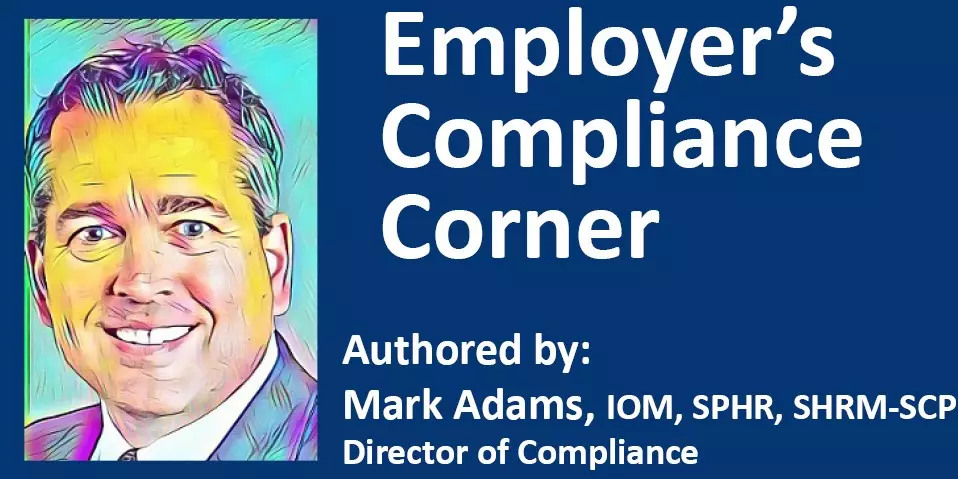
For Massachusetts and Connecticut employers, 2021 is marking the rollout of Paid Family and Medical Leave laws. The laws are by no means identical and are at various stages of implementation. At the present time, Connecticut employers are in the midst of taking payroll deductions out of their Connecticut employee’s pay to the tune of 0.5% in an effort to pre-fund the Connecticut trust fund that is being overseen by the Connecticut Paid Family Leave Authority for claims that it will begin to receive in 2022.
For Massachusetts employers, the pre-funding stage has already occurred as the Bay State is in the midst of fielding claims and providing benefits for certain reasons. Starting in January, the Massachusetts Department of Family and Medical Leave started to pay out claims for such covered reasons as birth and bonding, an employee’s own serious health condition or to attend to an injured service member.
With the prevalence of state paid family and medical leave laws and their own more generous scope of benefits (whether it be greater amounts of time off available, or broader reasons or family relationships being covered), some have raised the question of whether an employer who is subject to the federal Family and Medical Leave Act (FMLA) even has to contend with those requirements anymore? And the answer to that question is an undeniable YES.
Sure, there may be occasions where leaves under a state-paid family and medical leave law may run concurrently with FMLA. For instance, birth and bonding reasons, and an employee’s serious health condition could be a couple of examples whereby if an employee was eligible under both the federal FMLA and gained eligibility under a state-paid leave law, they could potentially run concurrently with little issue.
However, there may be numerous other reasons where that may not otherwise be the case. For example, attending to the serious health condition of family members whose family relationships may not be covered under FMLA would thus not count against an employee’s 12-week allotment under federal law, even if the leave was approved under a state paid family leave law. Thus, come summer in Massachusetts when family claims can be filed and paid out, an employee for instance, who goes out for up to 12 weeks of paid leave due to the serious health condition of a sibling or that of a grandparent, such time away would NOT count against their 12-week allotment for federal FMLA purposes; thus meaning that could go out for some other covered reason under the federal FMLA law.
Separately, there are also open issues that remain elsewhere. For example, when it comes to managing intermittent leaves under the federal Family and Medical Leave Act, there are specific provisions that allow for a covered employer under federal FMLA to be able to pro-rate a salaried/exempt employee’s pay without running afoul of the Fair Labor Standards Act. [See 29 CFR § 541.602(b)(7): “An employer is not required to pay the full salary for weeks in which an exempt employee takes unpaid leave under the Family and Medical Leave Act. Rather, when an exempt employee takes unpaid leave under the Family and Medical Leave Act, an employer may pay a proportionate part of the full salary for time actually worked. For example, if an employee who normally works 40 hours per week uses four hours of unpaid leave under the Family and Medical Leave Act, the employer could deduct 10 percent of the employee’s normal salary that week.”] But again, that is unique to the federal Family and Medical Leave Act alone.
Thus, for a leave that qualifies as a leave under a state paid family leave law but does not qualify as leave under the federal FMLA, such a proration tactic for an intermittent leave of a salaried/exempt worker, therefore, may not be possible.
Finally, there are US DOL Opinion Letters (FMLA2019-1-A and FMLA2019-3-A) that put the onus on an employer to designate a leave as federal FMLA should they be aware that such a leave is qualifying. These administrative responsibilities do not get cast away merely because a covered employee is gaining some additional benefit elsewhere.
Therefore, when you put all this together, it reinforces that now more than ever, an employer needs to remain vigilant in its leave administration policies and practices to ensure that its steps are compliant both from a state as well as a federal standpoint. PFML. PFL. FMLA. The never-ending leave alphabet soup does provide greater flexibility for employees to go out of work, but also creates greater challenges to manage these leaves from an employer point of view.